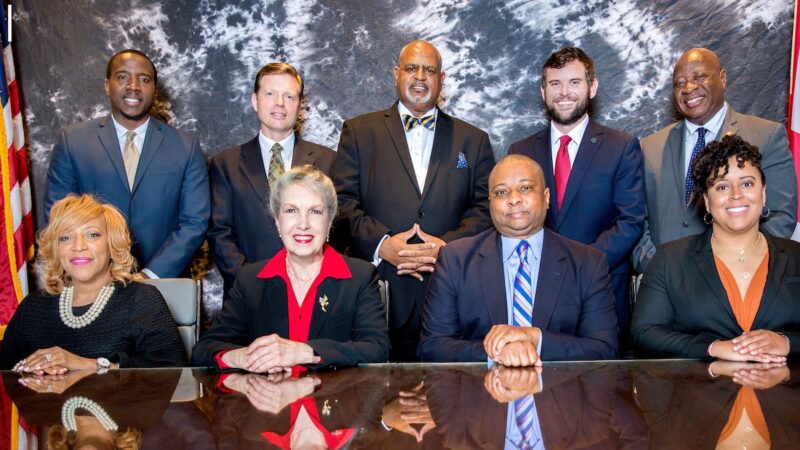Come Back With More Detail And We’ll Talk: Council Delays Plan For Rescue Money
Birmingham’s efforts to distribute millions of dollars of federal American Rescue Plan funding hit a snag Tuesday after councilors took issue with the vagueness of Mayor Randall Woodfin’s proposed allocations.
The city received the first half of its ARP funding, $74 million, in May; it will receive the second $74 million tranche next year. The council has already allocated some of that first half — about $17.5 million — toward premium pay for city employees who worked through the COVID-19 pandemic.
On Tuesday, Woodfin proposed to divide the remaining $53.1 million into the following categories: $3 million for community-based public safety initiatives, $1.5 million to COVID-19 response, $18 million for neighborhood revitalization projects, $18.75 million for public transportation, $4.5 million for small business support, $1.1 million for employee vacation buyouts, $4.75 million for tourism and $1.5 million for grant writing and professional services to pursue other federal funding sources.
Kelvin Datcher, Woodfin’s director of intergovernmental affairs, said the proposal was meant to allocate the ARP money into broad “buckets,” and that all projects and proposals within those categories would still require council approval.
“This allows us to begin that process by setting dollars into budget lines,” he said.
But councilors balked anyway, saying they were blindsided by parts of the mayor’s proposal. District 2 Councilor Hunter Williams told Datcher that he felt “bamboozled,” as his discussions with Woodfin’s team had omitted the $18.75 allocation to public transportation.
“We met this past week, or I thought we did,” Williams said, “only a matter of days ago, and there’s about $20 million that wasn’t discussed when we met … I am disappointed that we had an hour-and-a-half meeting and there was an omission of one-third of what’s on this sheet today.”
Other councilors, including District 3’s Valerie Abbott and District 8’s Steven Hoyt, lamented the lack of specific reasoning behind the allocations.
“How did we arrive at these figures?” Abbott asked. “Clearly there is someone who looked at these issues … That’s what I want. I want to know what these figures were based upon and what we can do with the money in these categories. I know these figures were not just pulled out of the sky.”
Woodfin responded by saying that the numbers were “pulled out of the sky” — including the $18 million allocated to neighborhood revitalization projects, which will be divided evenly among the nine council districts.
“None of these other buckets have any detail because they’re just buckets,” he said. “What you all are voting for is not trees, it’s literally the forest.”
The council remained unconvinced, opting instead to delay the item until a committee of the whole meeting when more details could be provided. That meeting will likely happen July 29 or Aug. 2, Council President William Parker said, and the proposal will come before the council again Aug. 3.
Woodfin had scheduled a joint news conference with the council to discuss the ARP allocations after Tuesday’s meeting; shortly after the council’s vote, his office announced that the conference had been indefinitely postponed.
Alabama’s racial, ethnic health disparities are ‘more severe’ than other states, report says
Data from the Commonwealth Fund show that the quality of care people receive and their health outcomes worsened because of the COVID-19 pandemic.
What’s your favorite thing about Alabama?
That's the question we put to those at our recent News and Brews community pop-ups at Hop City and Saturn in Birmingham.
Q&A: A former New Orleans police chief says it’s time the U.S. changes its marijuana policy
Ronal Serpas is one of 32 law enforcement leaders who signed a letter sent to President Biden in support of moving marijuana to a Schedule III drug.
How food stamps could play a key role in fixing Jackson’s broken water system
JXN Water's affordability plan aims to raise much-needed revenue while offering discounts to customers in need, but it is currently tied up in court.
Alabama mine cited for federal safety violations since home explosion led to grandfather’s death, grandson’s injuries
Following a home explosion that killed one and critically injured another, residents want to know more about the mine under their community. So far, their questions have largely gone unanswered.
Crawfish prices are finally dropping, but farmers and fishers are still struggling
Last year’s devastating drought in Louisiana killed off large crops of crawfish, leading to a tough season for farmers, fishers and seafood lovers.








